Salamanca Trip 12th - 17th May 2025
The MFL Department recently visited Salamanca in Spain. Read the report, the student reviews and view the photo gallery here.
The MFL Department recently visited Salamanca in Spain. Read the report, the student reviews and view the photo gallery here.
Year 7 produced some wonderful pieces of work for their MFL Diploma 'All About Me'.
Organising the culture competition was such a great experience!
Culture Week was nothing short of spectacular!

Last Tuesday I was part of a group of GCSE and IB students, led by Dr Symons and Mr Birch, visiting Oxford University to find out more about studying MFL.
What is Chinese New Year?
Last week, a group of Year 9 and Year 8 students had the opportunity to participate in a Government Outreach Programme entitled Where languages can take you.
On Tuesday 14th January, BGS welcomed several KS3 students from Dartford Boys' Grammar School to compete in an Inter-School Spelling Bee.
 On a crisp, cold December evening, an enthusiastic group of Year 11, 12 and 13 linguists visited St Dunstan’s College in Catford and were treated to a 'Careers in Languages' evening. The event was billed as a chance to attend an inspiring evening to unlock a world of opportunities with languages. Students explored the diverse and rewarding career paths that language skills can open up. They discovered many incredible opportunities listening to speakers from top organisations such as GCHQ, Military Intelligence, the Foreign Office, and the UN. They also heard first hand from a panel of current language undergraduates, who shared their experiences of studying languages at university. Additionally, they had the opportunity to take part in a fascinating taster session of Japanese, hosted by Kings Language Centre. Many BGS students came away inspired about future career possibilities of which they had not been aware prior to the evening.
On a crisp, cold December evening, an enthusiastic group of Year 11, 12 and 13 linguists visited St Dunstan’s College in Catford and were treated to a 'Careers in Languages' evening. The event was billed as a chance to attend an inspiring evening to unlock a world of opportunities with languages. Students explored the diverse and rewarding career paths that language skills can open up. They discovered many incredible opportunities listening to speakers from top organisations such as GCHQ, Military Intelligence, the Foreign Office, and the UN. They also heard first hand from a panel of current language undergraduates, who shared their experiences of studying languages at university. Additionally, they had the opportunity to take part in a fascinating taster session of Japanese, hosted by Kings Language Centre. Many BGS students came away inspired about future career possibilities of which they had not been aware prior to the evening.
Mrs Watkins, MFL Department
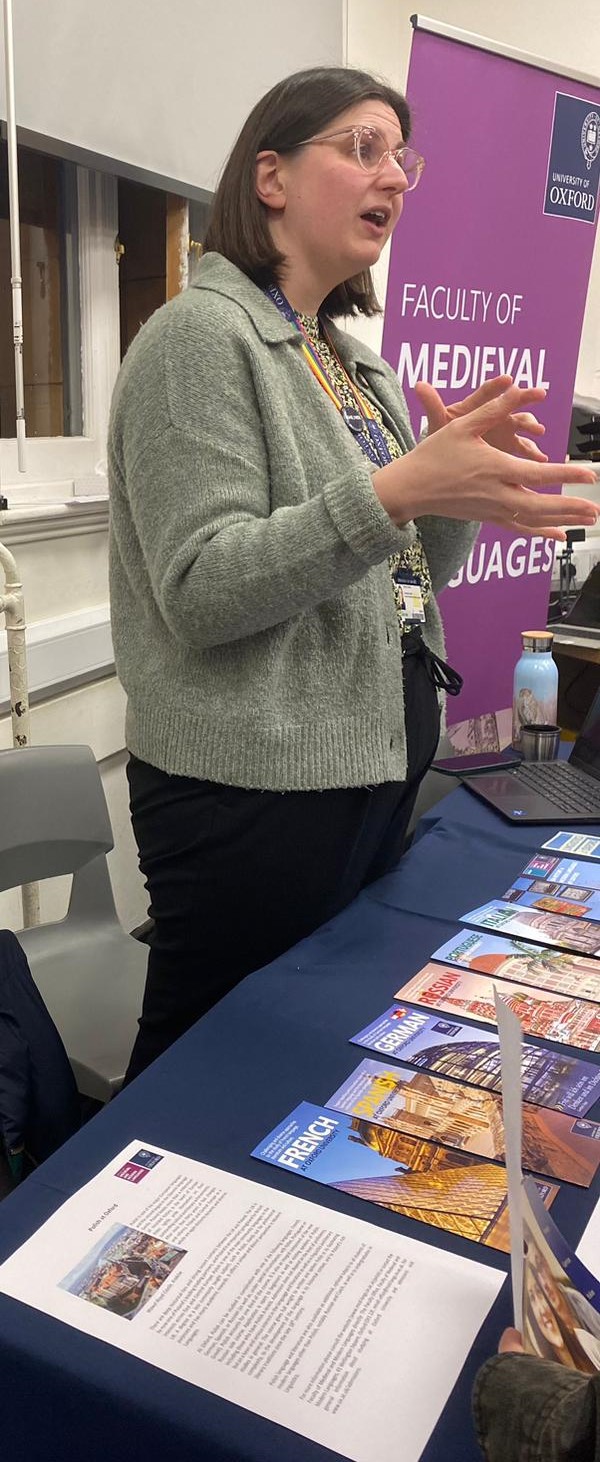 The trip to St Dunstan's was amazing! At the beginning of the event, we listened to a presentation by a group of people who are currently studying languages at university and using them in their jobs. It was very interesting as we also found out about different job ideas, such as working with GCHQ, MI5 and MI6. I had such a good time looking at the different stalls, where we were also given freebies too! The school was so grand and it was overall an amazing experience!
The trip to St Dunstan's was amazing! At the beginning of the event, we listened to a presentation by a group of people who are currently studying languages at university and using them in their jobs. It was very interesting as we also found out about different job ideas, such as working with GCHQ, MI5 and MI6. I had such a good time looking at the different stalls, where we were also given freebies too! The school was so grand and it was overall an amazing experience!
Gracie Gosling, Year 12
I really enjoyed the language trip to St Dunstan's - we enjoyed a variety of talks from a range of people using languages daily in their work and I found it fascinating to see the variety of ways that languages can be used in work. Translators aren't the only jobs, there are many others, such as GCHQ Language Analysts, Hotel Managers and many others. It gave an amazing insight into the pathway languages can give you in the future and I feel privileged to have been given the opportunity to take part.
Rafael De Souza-Plans, Year 11
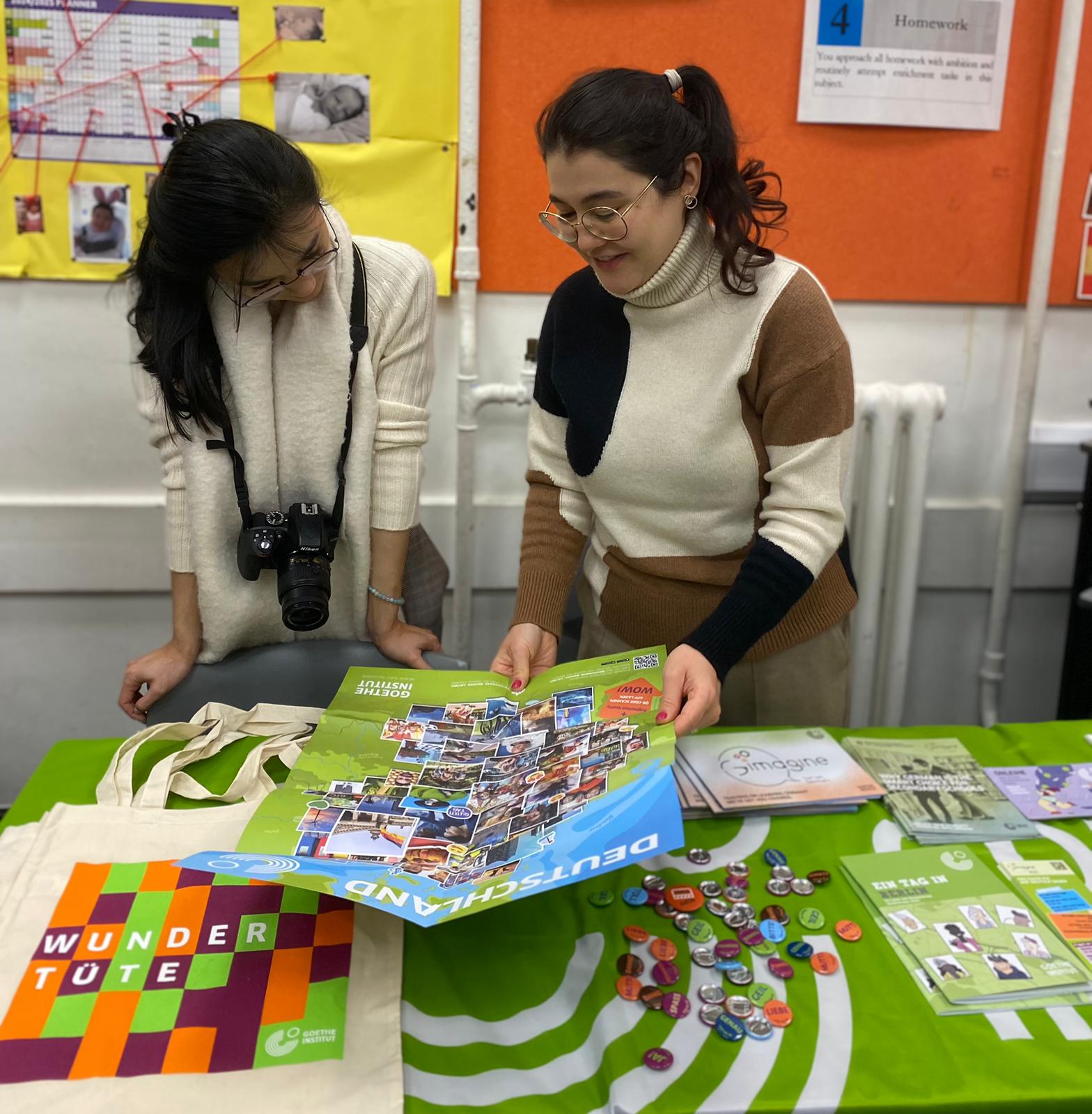
Tuesday brought an exciting opportunity for Bexley Grammar School MFL department, in collaboration with St Dunstan's College, who provided an amazing event on the subject of careers in languages. The night was a fantastic, information-filled evening where I got to hear from many linguists, such as a representative from the United Nations, members of the British Army - Intelligence Corps, GCHQ, university students and graduates, business owners, teachers and more. I think the most interesting moment for me was the question panel at the end!
As someone who is hard of hearing, and fascinated by sign language around the world, I thought it would be interesting to hear if any of the professional linguists had any interaction with foreign sign languages. The silence after I had asked this question was powerful, as all the best linguists that could be brought to the career evening expressed their bewilderment and interest in sign language, but none had learnt any sign in the over 300 sign languages in existence, that provide over 70 million people with communication in the world. This question also led to some fascinating personal conversations, including with some of the panellists about my experiences with language and communication. I hope this spreads awareness to all present in the evening, and those reading this, about the prevalence of sign language around the world.
Louis Luckman, Year 11

 I recently had the opportunity of a lifetime to go to Japan with the MFL department. There were 15 students and 2 adults (thank you to Ms Zotova and Mr Adams for their help!). We were all on an exchange program with a Japanese school called Keio, a prestigious high school connected to one of the best universities in Japan (ranked third according to unirank 2024).
I recently had the opportunity of a lifetime to go to Japan with the MFL department. There were 15 students and 2 adults (thank you to Ms Zotova and Mr Adams for their help!). We were all on an exchange program with a Japanese school called Keio, a prestigious high school connected to one of the best universities in Japan (ranked third according to unirank 2024).
I believe that the exchange program is what makes the trip, especially at Bexley Grammar, so great! I first met my exchange partner, Issei, in late February this year when he came to England and stayed with us for a week as well as going to Cambridge as a school for a couple of days) and he got to experience British food, school and traffic (which was quite a shock I think).

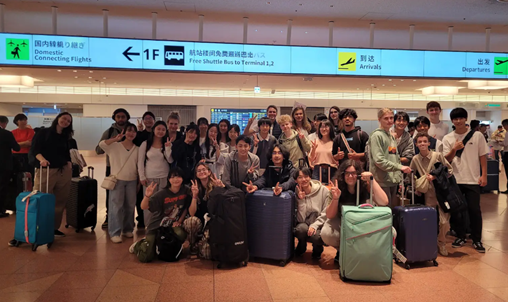
We had contacted each other before that, so we knew each other, but it was incredible to form such a close friendship with someone on the other side of the world. When I went to Japan, Issei and his family picked me up from the airport, and after a group photo, took me to their house. His mum had prepared an amazing meal for lunch, with two different types of noodles, steak, fruit and tea, and we started getting to know each other. It was a great opportunity to practice my conversational Japanese, and I surprised myself with how much of the conversation I was able to keep up with.
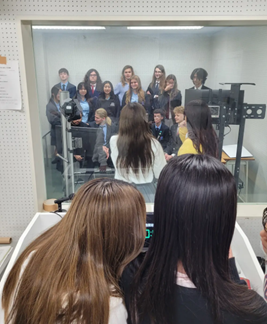 Throughout the four days I had with them (a weekend and two school days), I learnt more about the Japanese language, culture and general life, which was invaluable to my studies and to my personal knowledge of the country. There was even an election at the time, so I got to watch some of the coverage in Japanese! The family were so enthusiastic about me being there and all of my worries were gone within a matter of minutes after meeting them. Even their dog welcomed me with lots of cuddles.
Throughout the four days I had with them (a weekend and two school days), I learnt more about the Japanese language, culture and general life, which was invaluable to my studies and to my personal knowledge of the country. There was even an election at the time, so I got to watch some of the coverage in Japanese! The family were so enthusiastic about me being there and all of my worries were gone within a matter of minutes after meeting them. Even their dog welcomed me with lots of cuddles.
As well as with the family, I was immersed in Japanese culture in school, where I experienced lessons from Art to Spanish, and activities from broadcasting a message to the entire school, to Japanese extracurricular activities like Karuta (a card game based on memorising parts of Japanese poems). One of the things that was most interesting to me was classroom etiquette, which included it being considered rude to drink without permission, but completely fine to fall asleep in class, as it represents the hard work of the students making them tired.
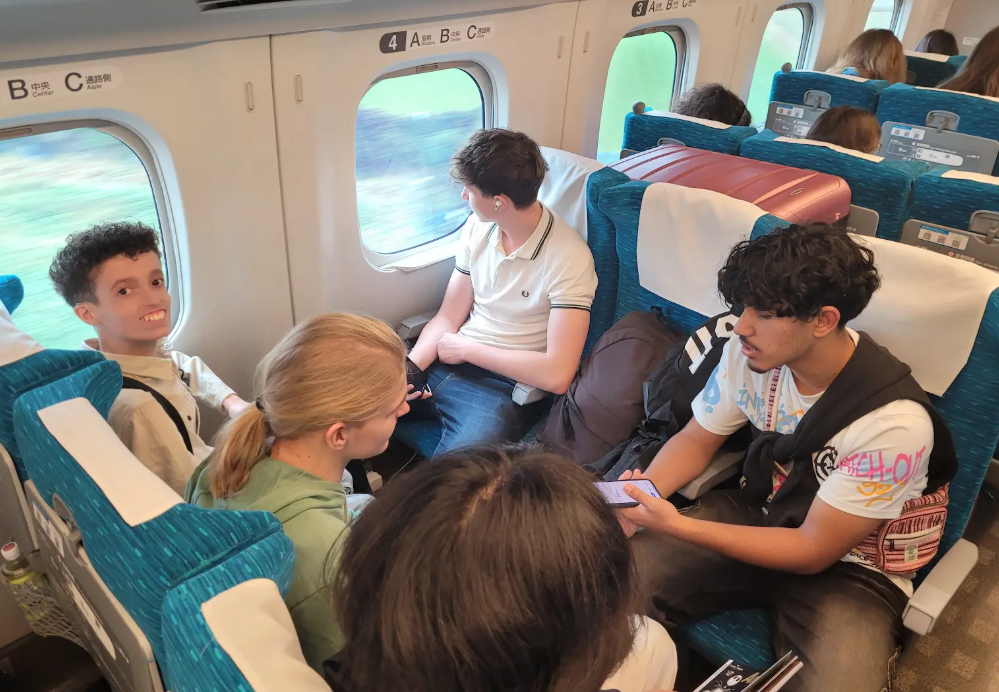
As the final part of the trip, we went to Kyoto, Shinjuku, Shibuya and Harajuku, to explore even more of Japan, with its unique combination of vibrant and modern cities and traditional culture spanning centuries and centuries. We travelled by the world-famous Shinkansen (bullet train), catching views of Mt. Fuji and the countryside, and then dived into culture in a beautiful castle previously associated with the Shogun, and its surrounding natural beauty, all of which was breathtaking. To see these amazing sites was something I have dreamed of for years, so it was fantastic! And what would a trip to Japan be without karaoke (or maybe two... or three)?
I would like to thank everyone that had a role in organising the trip, especially Mr Adams, and my host family, and the other people on the trip who I have made memories of a lifetime with! Everyone worked together to make this an experience that is impossible to forget! I can't wait to stay in contact with my host family and hopefully meet them again soon!
Louis Luckman, Year 11
